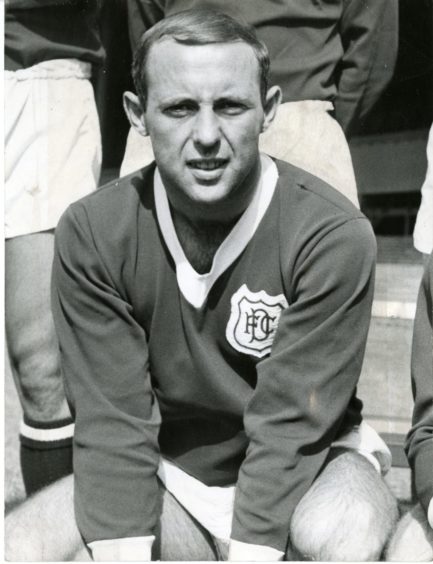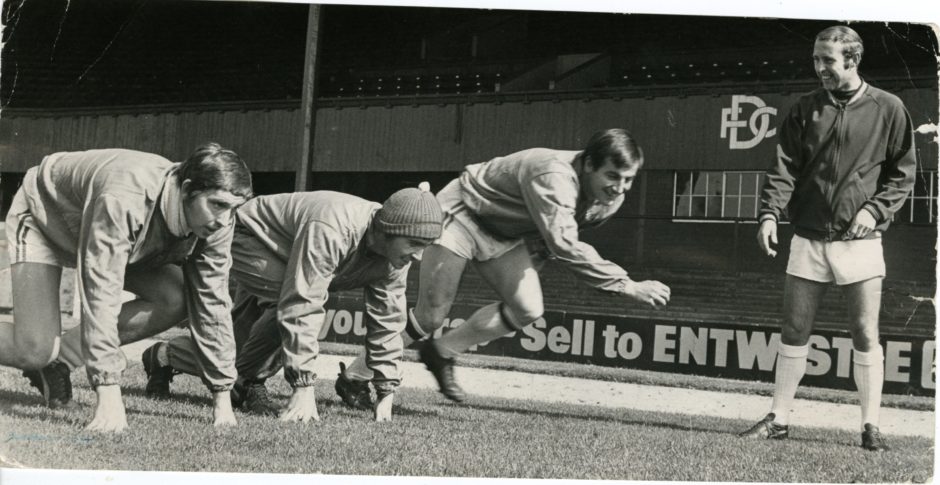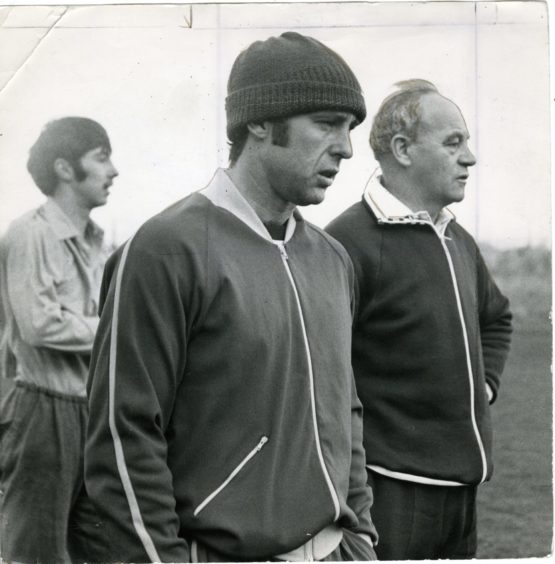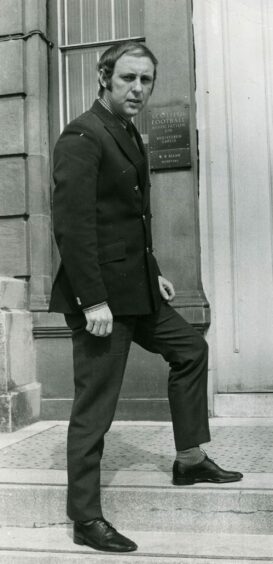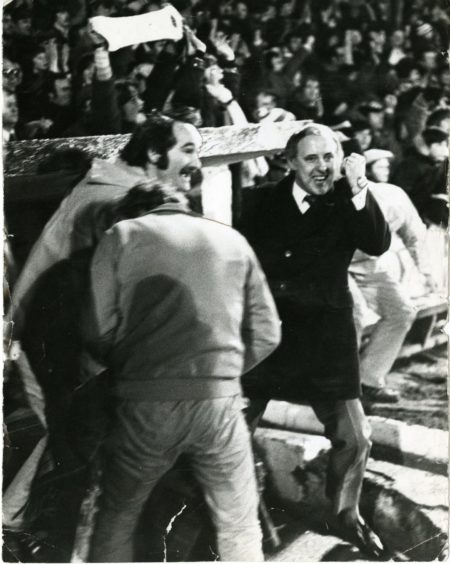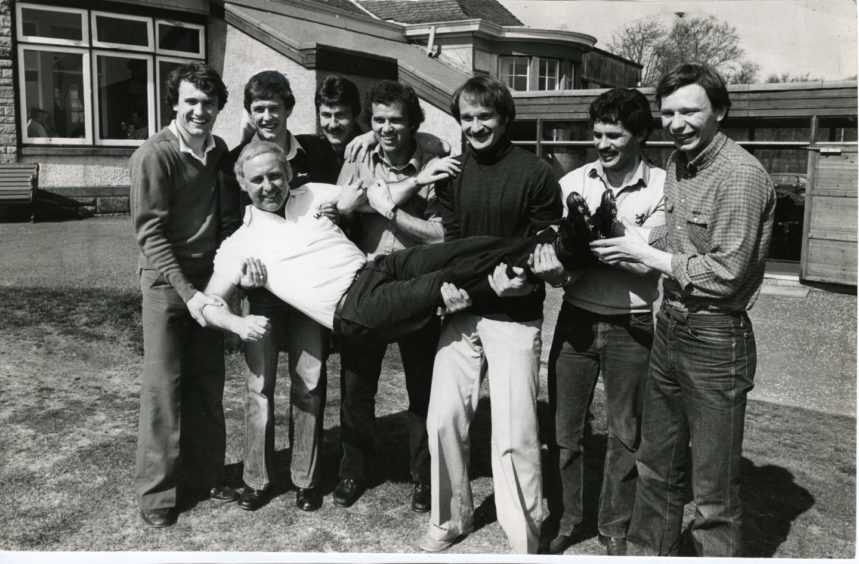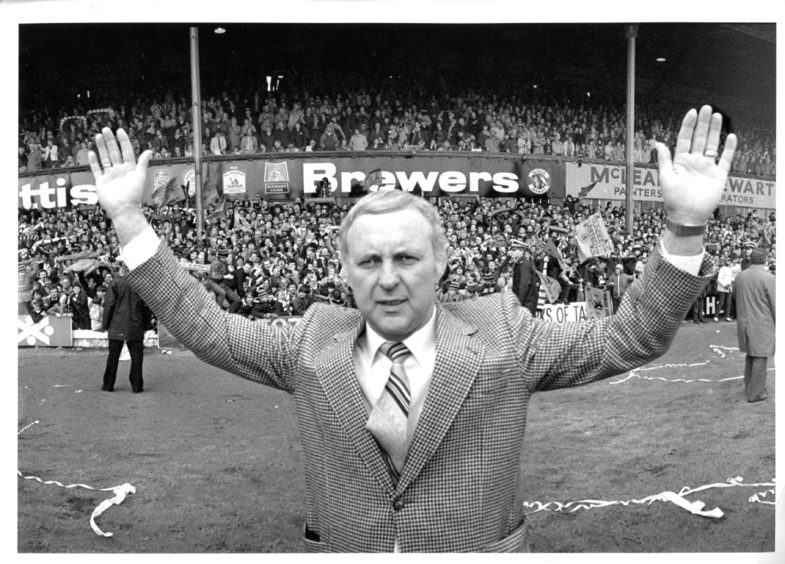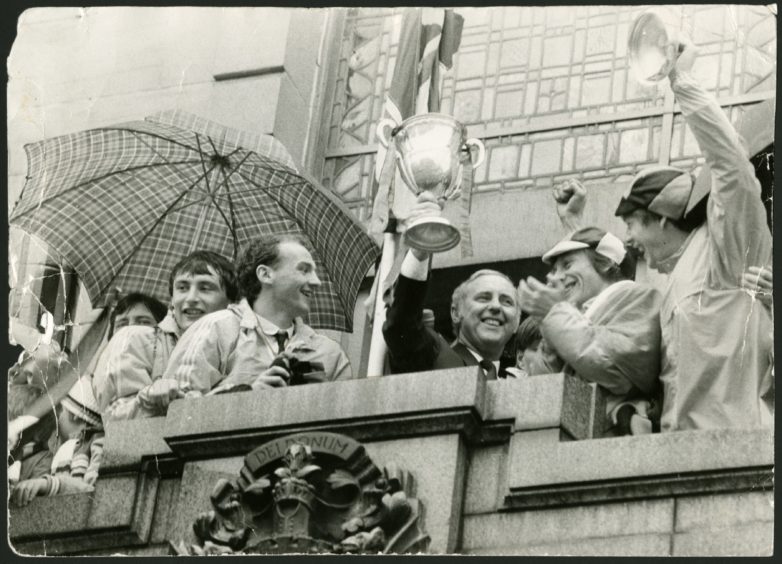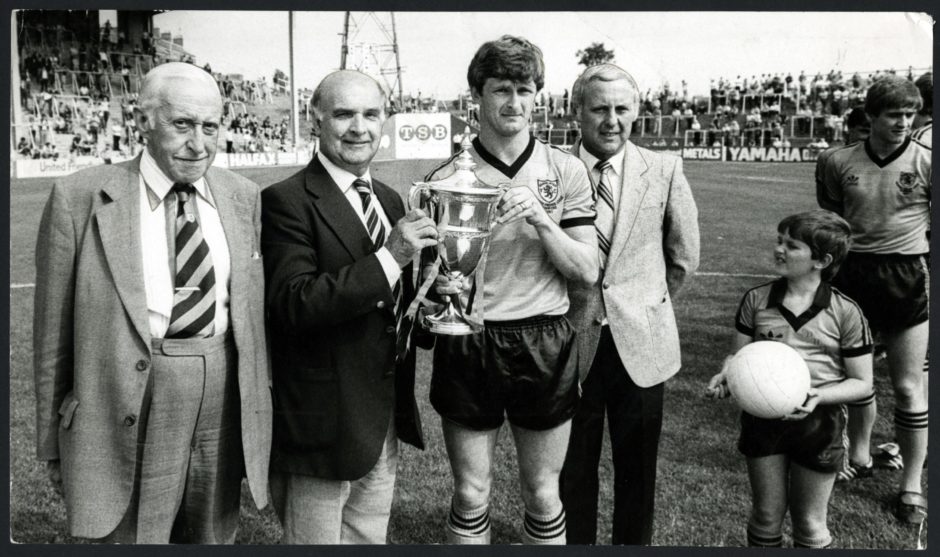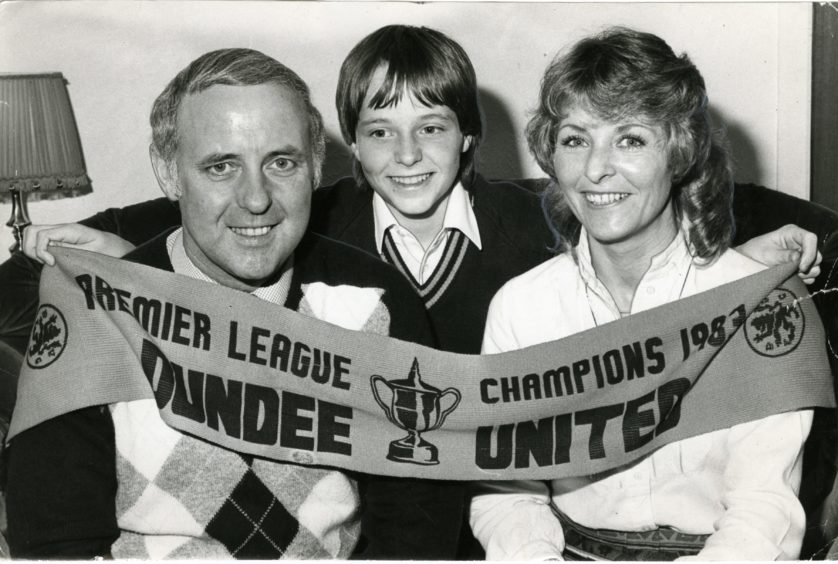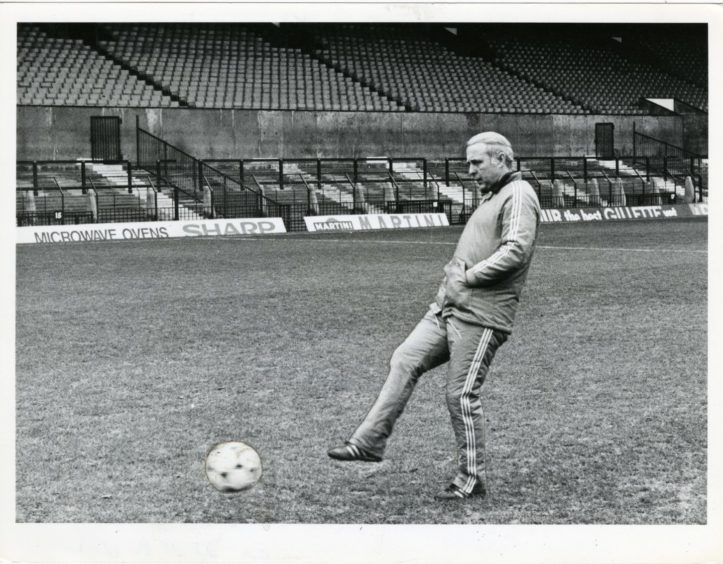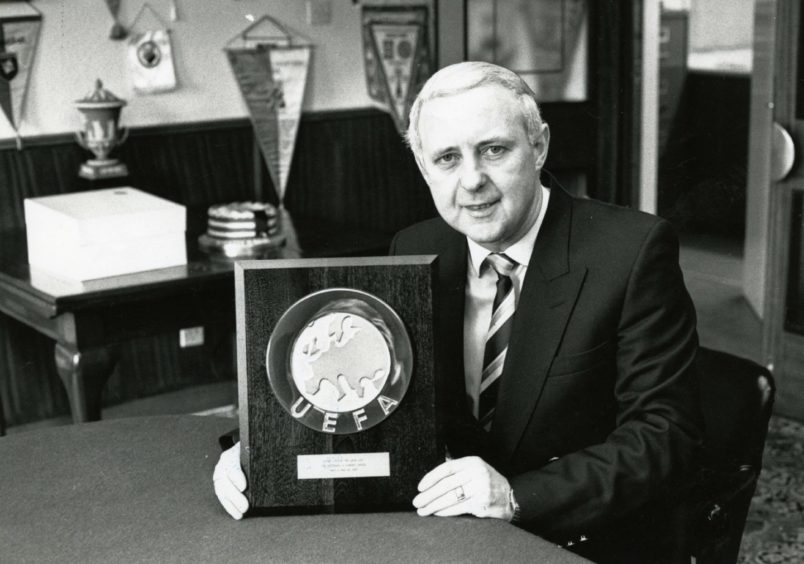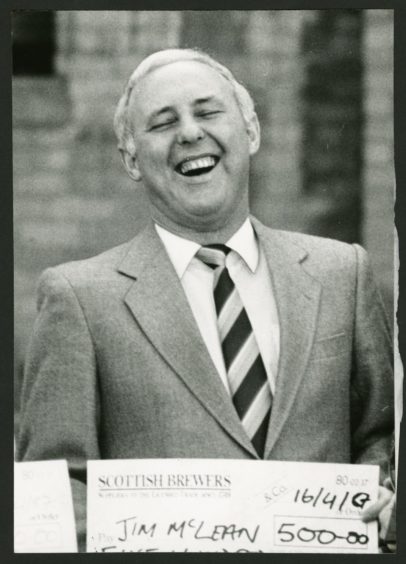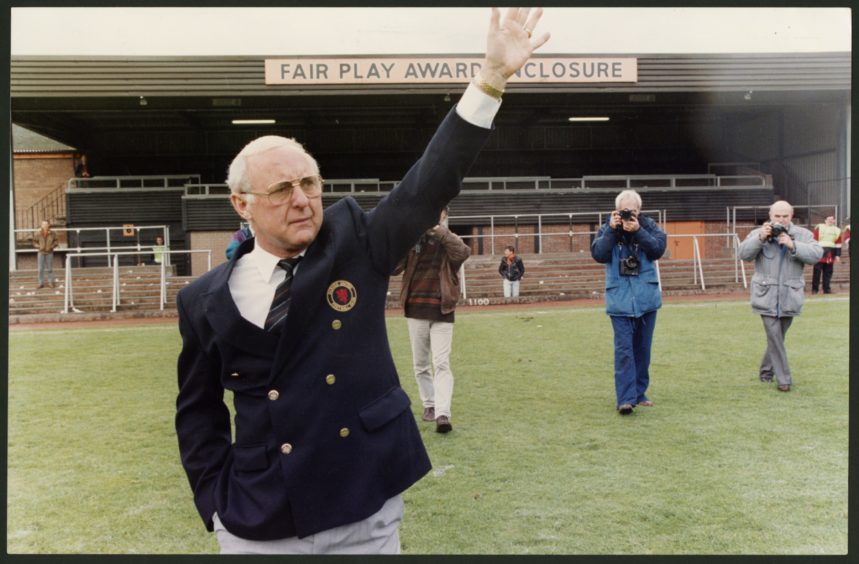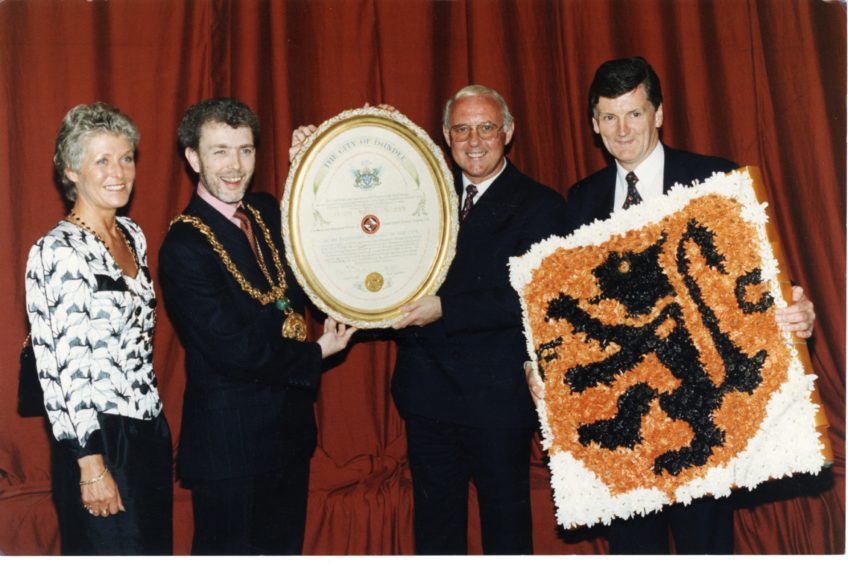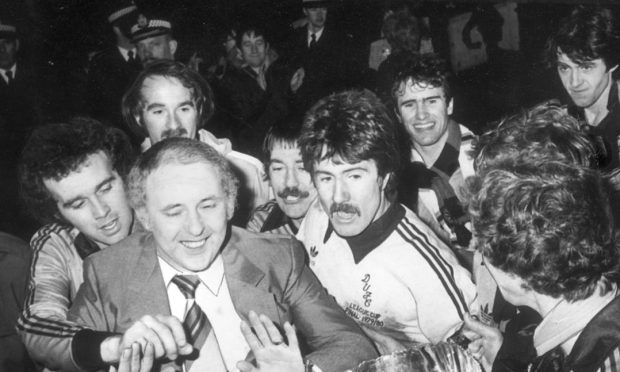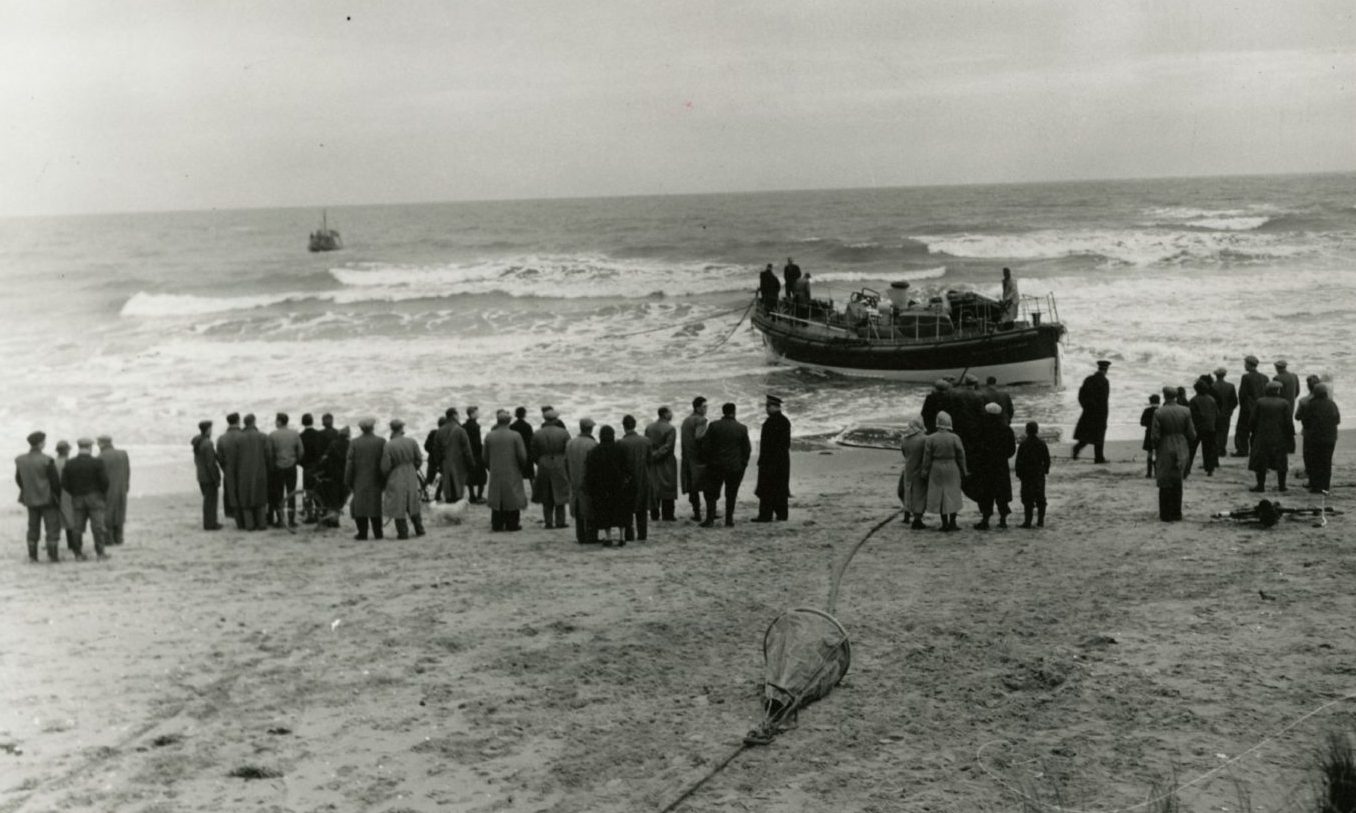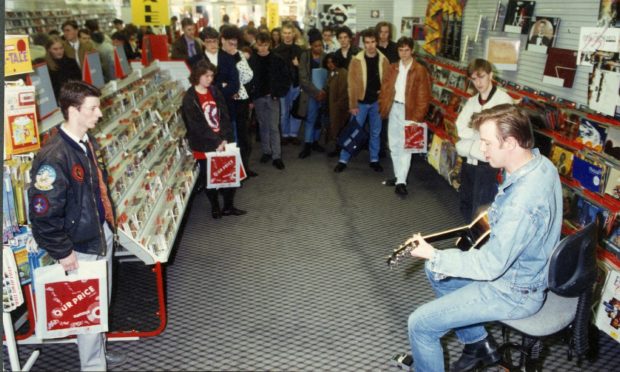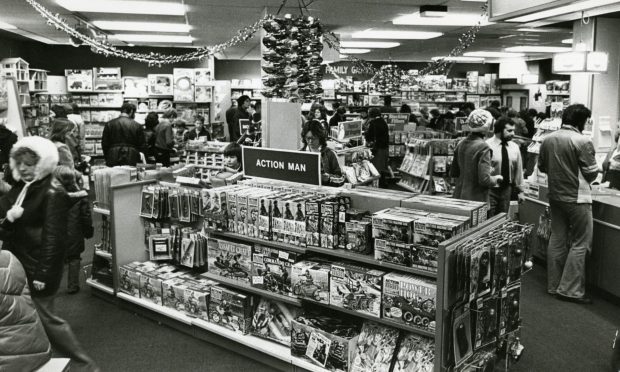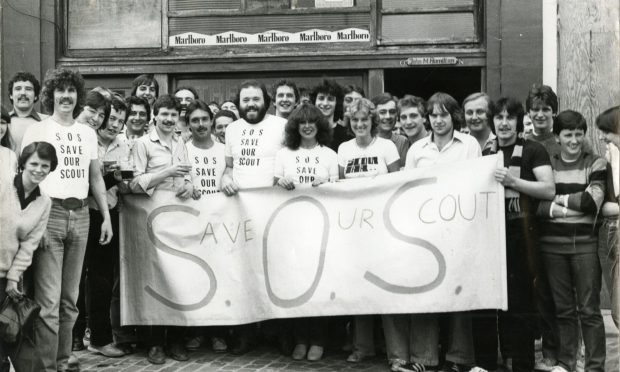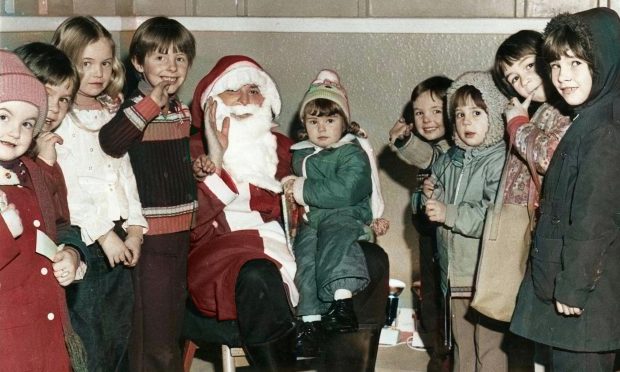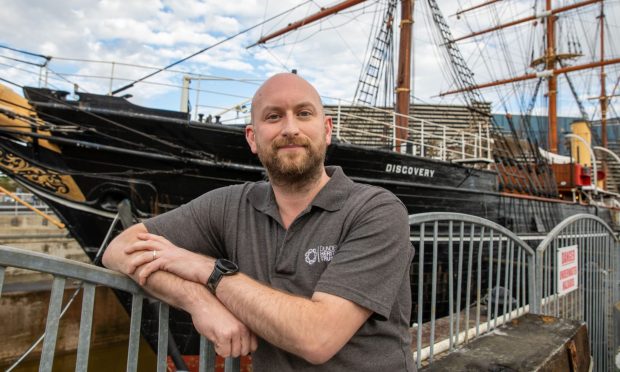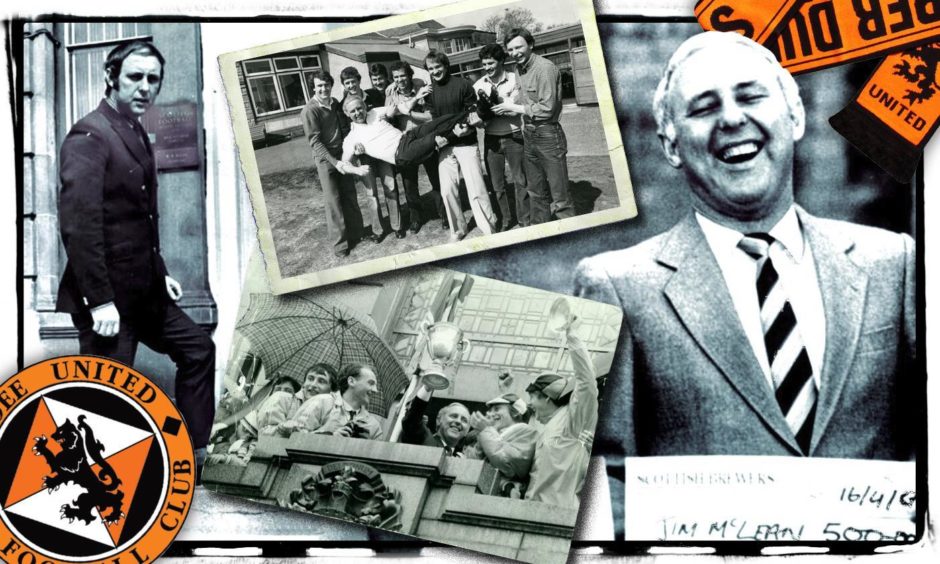
Jim McLean was the tactical genius who took Dundee United to unimaginable heights, not just in Scotland, but right across Europe.
United fans in the golden age of the 1980s expected to beat Rangers and Celtic and knew they would always have a chance against the greatest of Aberdeen teams.
At the height of United’s success in the 1980s, one English commentator even described Dundee as the “city of the four J’s” – jute, jam, journalism and Jim McLean.
During a campaign backed by the likes of Sir Alex Ferguson, United fans raised more than £60,000 to immortalise McLean in bronze outside Tannadice.
Ahead of the first city derby of the season, the statue will be unveiled to the man who made Tangerine dreams come true during 22 years in charge.
To mark the occasion we have opened up DC Thomson’s archives and taken a trip down memory lane to celebrate Jim McLean’s life in pictures.
Jousting with Giants
Jim McLean’s senior playing career started with Hamilton, and from here he went on to Clyde, Dundee and Kilmarnock.
McLean was in the Dundee team which reached the semi-final of the Inter-Cities’ Fairs Cup in 1968 after scoring twice in the 3-0 first round win over DWS Amsterdam.
The curtain came down on his playing career in 1970.
He had made a positive impression at Dundee and returned there as a coach.
Just 18 months later, McLean took a few steps down Tannadice Street to become boss of Dundee United.
“I want to make it absolutely clear that I’ll be solely responsible for choosing the team and their tactics on the field,” he said.
“I will take full responsibility for United’s performances from now on.
“Naturally, I hope the club will go on to achieve success.
“I’ll do my very best, though it could take time to know the players’ full capabilities and for my ideas to work out.”
His first priority when he was named United manager was to get the United team in shape as he felt they were miles short of the level of fitness required for supposedly elite athletes.
The first major honour for McLean and United came in December 1979, when they beat Aberdeen 3-0 in a replayed final of the League Cup at Dens after a goalless draw at Hampden.
Two goals from Willie Pettigrew and one from Paul Sturrock gave the fans the silverware they had waited so long for and confirmed the manager’s credentials as being top drawer.
The following season they retained the trophy, again at Dens and this time by seeing off their city rivals 3-0.
United may have still regarded themselves as a corner-shop outfit, but in a playing sense, by that time, they were very much one of the big boys of a Scottish game, which was considerably healthier than it is now.
That was confirmed in ’82-83 when an inspired season was crowned with a 2-1 final day Dens derby success to claim the Premier League, and with it legendary status for McLean.
United went to a packed Dens Park knowing only a win would guarantee them the title in a close-fought race with Celtic and Aberdeen.
“With what the players are going out to play for, there is no talking I can do,” said McLean at the time.
“They know they will achieve near immortality if they win the championship, and if that doesn’t make them play, nothing will.”
Ralph Milne started the ball rolling with his classic chip then Bannon converted a rebound after his penalty was saved.
Future United star Iain Ferguson got one back for the home team but McLean’s men held on to clinch the crown in front of almost 30,000 spectators.
Only 14 men played more than five times; six were native to the city; 10 had come through the youth ranks; and transfer fees were paid for just two.
In an interview with Grampian Television’s Alan Saunders after the Dundee match, McLean trimmed the number to 12.
Rangers tried to lure McLean to Ibrox in October, but he stayed and also became involved in the Scotland set-up, assisting both Jock Stein and Alex Ferguson.
The following campaign only served to enhance his reputation further as his team battled all the way to the brink of a European Cup Final.
A 2-0 home win in the first leg of a semi-final against Roma seemed to have done the trick, but an uncharacteristic collapse in the intimidating atmosphere of Rome’s Olympic Stadium saw Roma go through 3-2 on aggregate.
“The hatred directed towards us after we beat them 2-0 in the home leg was unbelievable,” he said.
“With the final being played in Rome they were determined to reach it at all costs and even after they had won the return 3-0 it didn’t stop.
“Only the intervention of our substitutes prevented a very big incident in the tunnel and to this day I am convinced that there’s no way I would have escaped physical harm if we had got the result.”
As the 80s progressed, there would be another near thing in Europe as he masterminded a glorious run to the final of the 1987 UEFA Cup, beating cracks Barcelona and Borussia Monchengladbach away from home on the way.
Gothenburg were the opponents in the final, and United left the Ullevi Stadium in good shape after the first leg, only 1-0 down.
The return was the first and only time that a Scots club has played a European final on their own park.
United never really recovered after Lennart Nilsson scored for Gothenburg on 22 minutes.
Clark equalised on the hour but it stayed at 1-1 and 2-1 on aggregate to the Swedes.
He would stay on for five more years, but with the full financial might of Rangers and Celtic now taking effect, was unable to mount a sustained challenge for league honours.
As a manager he coached United to magnificent achievements and feats which shouldn’t have been possible given the limitations of the club’s size and crowds.
Only the Scottish Cup remained elusive despite the fact that the club would contest six finals during his managerial reign.
He finally decided to swap his manager’s chair for the chairman’s seat on a full-time basis in May 1993 after United lost his final game 1-4 to Aberdeen at Tannadice.
McLean’s achievements with the Tannadice outfit were honoured with the award of the Freedom of Dundee.
He resigned as chairman in 2000 and McLean’s 31-year association with the club ended in 2002 when he sold his stake to Eddie Thompson.
McLean was inducted into the Scottish Football Hall of Fame in 2005.
He died in December 2020 at the age of 83.
The title of the Jim McLean story, published in the late 80s – Jousting With Giants – suggested a manager punching above his weight.
The club might have been, given their finances, but the man himself was right up there with the best Scotland has ever produced.
See more like this:
Never-before-seen photos of Dundee United fans in Gothenburg in 1987
Rangers broke Dundee United legend Jim McLean’s heart in forgotten ‘family final’
Jim McLean: The ‘lost’ interview with the legendary Dundee United manager
